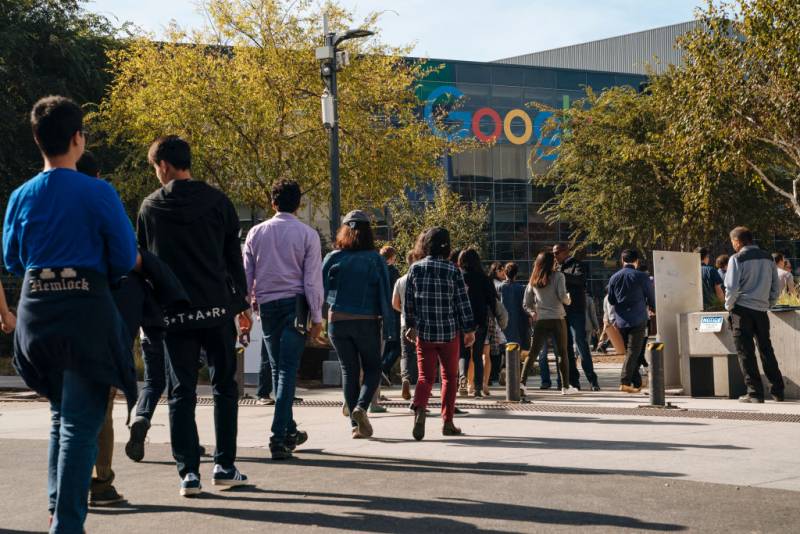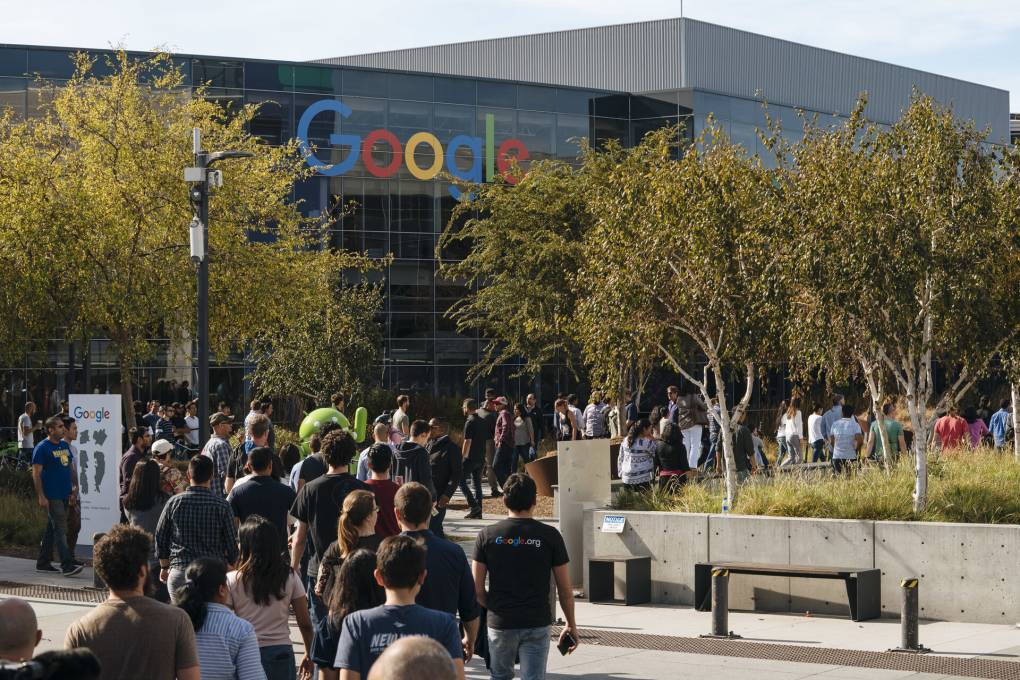Following the election of President Trump in 2016, a growing number of software engineers and product developers began to question Silicon Valley contracts with the U.S. military and police departments.
They formed into activist groups like the Tech Workers Coalition and publicly challenged management decisions. The Google walkout in 2018 was the most dramatic public showing of this growing discontent.
Last year, a group of about 80 subcontracted white-collar workers at a Google office in Pittsburgh, Pennsylvania, joined the U.S. Steelworkers union (and faced retaliation as a result.) That same year, employees at Kickstarter formed their own “enterprise” union, solely for employees of the company.
But not everyone involved in recent Silicon Valley activism has joined the new Google union.
Among those critical of the effort is Amr Gaber, a software engineer at the company who has been involved in worker activism there for years. He has specifically criticized the union's partnership with the Communications Workers of America.
“We had relationships with a wide range of unions and worker support groups before CWA showed up,” he recently said on Twitter. "But CWA was the only group that pulled these stunts of marking territory and publicly taking credit."
Because the new union doesn’t represent a majority of workers at Google, it's what's called a "minority union.” And unlike many other trade unions, it includes a variety of workers, from software engineers to cafeteria staff.
The fledgling union is also not yet recognized by the National Labor Relations Board or by Google itself, which in a statement responding to the union's formation, said it “would continue engaging directly with all our employees.”
Barriers to Organizing
Silicon Valley companies like Google have done a lot to make it difficult for workers to form unions, said Chris Tilly, a professor of urban planning at UCLA.
“There are a lot of barriers to building worker solidarity within Google,” he said.
Tilly said it used to be easier to organize at places like manufacturing companies, where large numbers of workers were doing similar tasks on similar contracts. But Google, like many other companies, tech and otherwise, has been effective at “fissuring” workers, hiring some as contractors, others as temps and also outsourcing labor around the globe, he said.
The workers are in different physical locations and the contractors have different employers, making in-person organizing all the more difficult. They also have a very disparate set of employment statuses at the company — different wages, benefit packages, contracts and protections — creating a two-tier class system.
Tilly said this makes it particularly tricky to organize workers around common goals. “It also creates all kinds of divisions among workers and it potentially means different groups of workers can be pitted against each other,” he said. Temps, contractors or overseas workers, for instance, may now be seen as a threat to full-time employees.
The concentration of wealth at these companies also plays a role in dampening unionization efforts. Companies like Google and Facebook have been able to generate large profits with a smaller number of full-time employees. They can afford to offer relatively high pay, benefit packages and perks to keep most workers satisfied, without letting them have much say in how the companies operate or what they produce.
The Opposition
There has also long been an anti-union streak in Silicon Valley, as Jacobin editor Alex Press noted in an article about the formation of the Google's union. She referred to a famous quote by Robert Noyce, who co-founded Intel in 1968: “If we had the work rules that unionized companies have, we’d all go out of business.”
Michael Solana, a venture capitalist at Founders Fund, is an open critic of the new union. The union, he wrote on Twitter, is “appropriating the language of exploited coal miners.”

